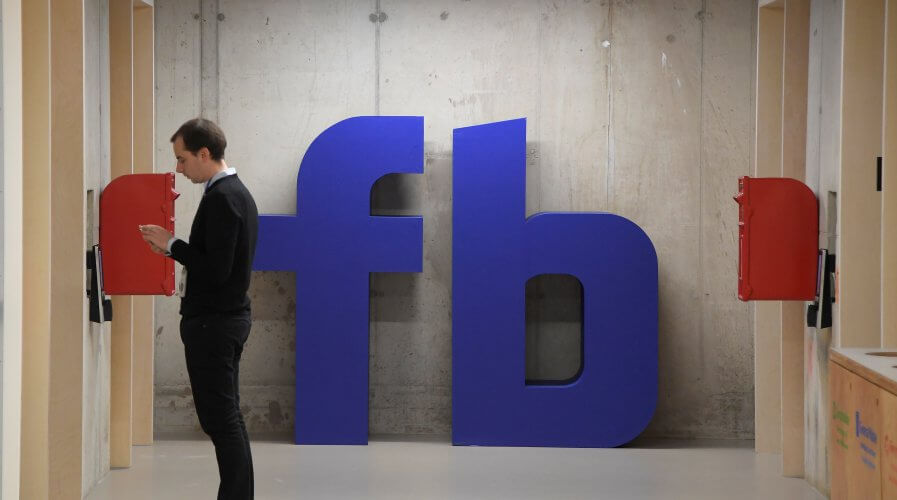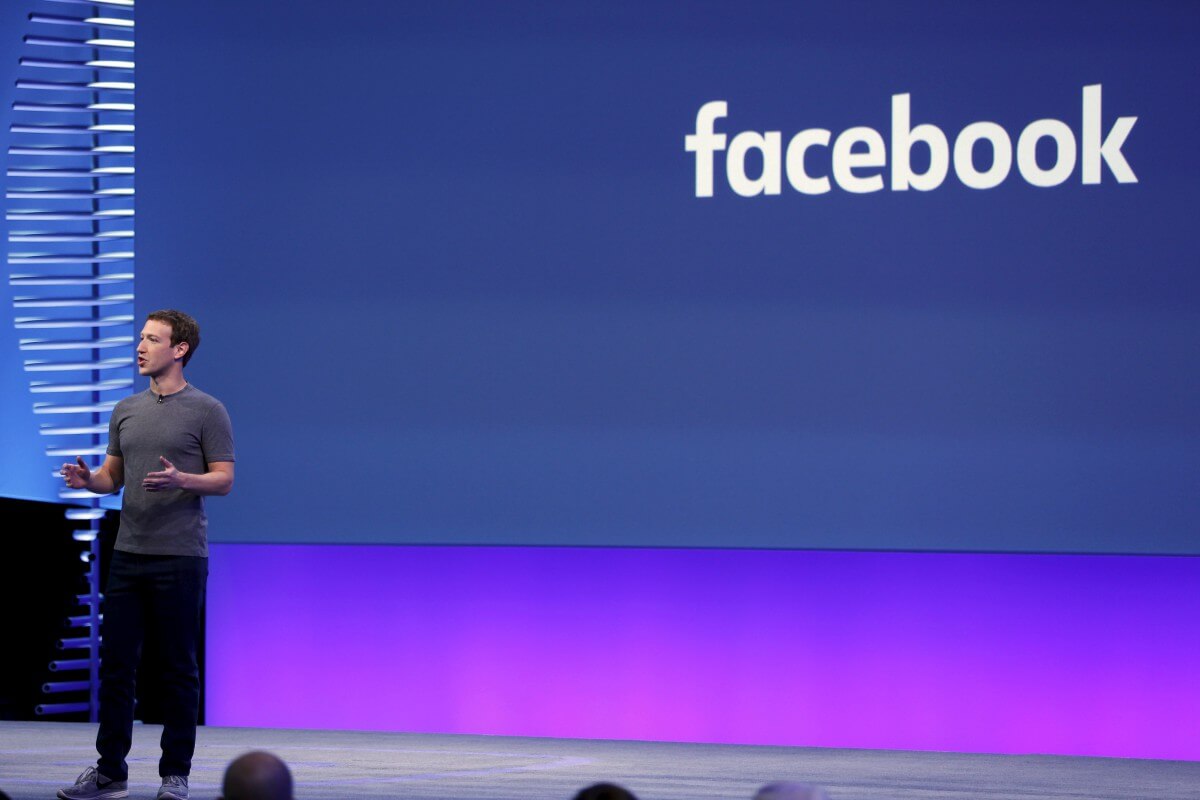
A man waits for an elevator in front of a logo at Facebook’s headquarters in London, Britain. Source: Reuters
Social media can be a positive tool if used in an active manner – Facebook
FACEBOOK INC. defended its social media platform against criticisms from the scientific community and tech industry insiders who have said that the site and social media networks as a whole have fundamentally affected the fabric of how we express ourselves and behave.
In a blog post, Facebook argued that social media can be a positive tool for the well-being of people if it’s used in an active manner — meaning engaging in conversations with friends and posts — rather than in a passive way by absorbing other people’s content through the News Feed.
The company acknowledged that there was “compelling research” on the worst impulses social media breeds in its users in the long run, going so far as to cite them in their blog. The company said that the problem with social media ultimately came down to “how” these tools are used.
“In general, when people spend a lot of time passively consuming information — reading but not interacting with people — they report feeling worse afterward,” the blog post read, later citing two university studies that measured moods against time spent on Facebook.

Facebook has been pushing back against criticisms that social media has changed society. Source: Reuters
“Though the causes aren’t clear, researchers hypothesize that reading about others online might lead to negative social comparison — and perhaps even more so than offline, since people’s posts are often more curated and flattering. Another theory is that the Internet takes people away from social engagement in person.”
On the other hand, Facebook also noted that arguments against social media and technology are often founded on anecdotal evidence that ignores the good bits, citing arguments by sociologist Claude Fischer. And all those stories you have of people ignoring their friends at the dinner table? The social media platform said that phones aren’t used as tools to ignore our companions, but as ways to pass time alone.
Facebook went so far as to report that they had employed “social psychologists, social scientists and sociologists” to work with them to “understand well-being and work”. In response to the negative research on social media, Facebook said that it was building several tools to boost user engagement with content and reduce passivity on the site.
Facebook is "destroying how society works" – that's the view of a former Facebook executive Chamath Palihapitiya, who worked at the company six years ago. pic.twitter.com/GVNIaRtC7E
— Channel 4 News (@Channel4News) December 12, 2017
The push-back comes after Chamath Palihapitiya, a former Facebook executive and current Silicon Valley investor, made headlines for comments that essentially called Facebook out as a form of social conditioning. Palihapitiya said that the platform was “destroying how society works” and had prevented his own children from accessing the site.
He later revised his views in a (ironic) Facebook post, saying that the platform is a “force for good in the world”.
Facebook’s response was the second time in a week that the social media giant has engaged with Palihapitiya’s comments, though the debate is only one facet in a wide-ranging discourse that is currently taking place in the technology industry, specifically in relation to social media.
Other platforms such as YouTube, Twitter and Snapchat have come under fire for perpetuating anti-social behaviors and creating addictive loopholes, two factors that are linked to feelings of isolation. Non-profit Time Well Spent has been working on pressuring companies to move away from platforms whose monetization models are built entirely from consumers’ attention.
“Facebook’s business model depends on monopolizing consumer attention, and content that appeals to fear and anger is the most profitable way to do that,” said Roger McNamee, a venture capitalist and an early Facebook investor, in an email to Reuters on Friday. He said fundamental change would only be possible when tech companies begin turning away from “where the money is”.
READ MORE
- Ethical AI: The renewed importance of safeguarding data and customer privacy in Generative AI applications
- How Japan balances AI-driven opportunities with cybersecurity needs
- Deploying SASE: Benchmarking your approach
- Insurance everywhere all at once: the digital transformation of the APAC insurance industry
- Google parent Alphabet eyes HubSpot: A potential acquisition shaping the future of CRM






